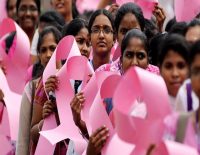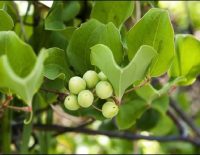Suffering hair loss, use these foods for growth

Hair is made up of two structures: the hair shaft, the visible part of hair outside of your skin, and the hair follicle, which is hidden underneath your skin. Your scalp houses around 100,000 hair shafts that are at varying stages of hair growth at any given moment.
Hair growth happens in four phases: anagen (growth), catagen (regression), telogen (rest), and exogen (shedding).
The life cycle of a hair shaft is around 3.5 years, and hair grows at an average rate of 0.05 inches per month. Your hair grows from hair follicles, which depend on certain nutrients in order to stay healthy and nourished. Hair follicle cells are amongst the most rapidly dividing cells in the body and are sensitive to nutrition deficiencies, toxins, and malnutrition, which can lead to poor hair growth and hair loss.
Here are best foods that support healthy hair growth.
Sunflower Seeds
Sunflower seeds are rich in plantbased protein and Vitamin E, two nutrients necessary for healthy hair growth. Vitamin E has powerful antioxidant activity and may help promote hair health by protecting hair follicle cells against oxidative damage, which is known to disrupt hair growth.
Blackberries
Blackberries are rich in anti-inflammatory and antioxidant phenolic compounds, such as anthocyanins, ellagic acid, and quercetin. Inflammation caused by factors such as a diet rich in ultra-processed foods, smoking, and other factors, accelerates the transition from the anagen to the telogen phase and is associated with the progression of hair loss. Inflammation is linked with common hair loss conditions such as alopecia areata, stress-induced hair loss, and male- and female-pattern hair loss, also known as androgenetic alopecia.
Consuming foods rich in these compounds may lower oxidative stress, a condition that occurs when harmful compounds such as free radicals overwhelm the body’s antioxidant defenses, and protect hair follicle cells from oxidative damage, thus promoting healthy hair growth.
Pumpkin Seeds
Being stressed can encourage the anagen to telogen transition and cause telogen effluvium, a type of hair loss characterized by a disruption in the normal hair growth cycle, which leads to excessive hair shedding and hair loss. Elevated levels of the stress hormone cortisol have also been observed in people with hair loss disorders, such as androgenetic alopecia.
Magnisum is a mineral that plays an important role in the body’s stress response and protects the body from the adverse effects of stress.
Pumpkin seeds are an excellent source of magnesium, providing 156 milligrams (mg) or 37% of the DV. Pumpkin seeds also provide zinc, copper, iron, and protein, all of which are essential for hair health.
Lentils
Protein is essential for the hair growth cycle and low protein intake can negatively impact hair growth, structure, and hair pigmentation. Studies show that reduced protein intake can trigger telogen effluvium and cause poor hair growth. Lentils are one of the most protein-rich plant foods you can eat, providing 17.9 g of protein per cooked cup, which is nearly 30% more protein than what’s found in two large eggs
Salmon
Salmon is high in protein, vitamin D, B12, and omega-3 fats, which are nutrients that can support hair health and growth.
Wild-caught salmon provides 1.24 g of docosahexaenoic acid (DHA) and 0.59 g of eicosapentaenoic acid (EPA)EPA per 3-ounce serving. These fats have powerful anti-inflammatory properties and may help protect the hair follicle from oxidative damage, support healthy hair growth cycles, and improve hair density.








Comments